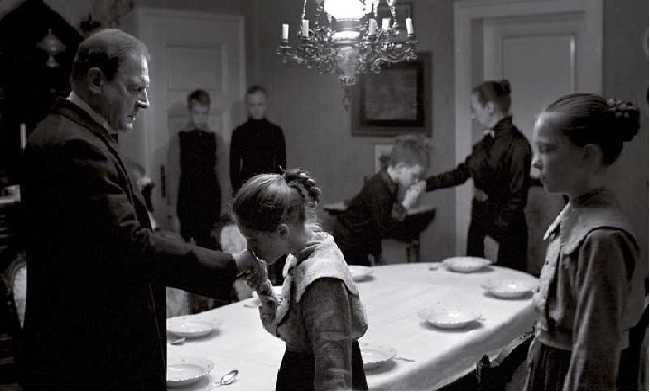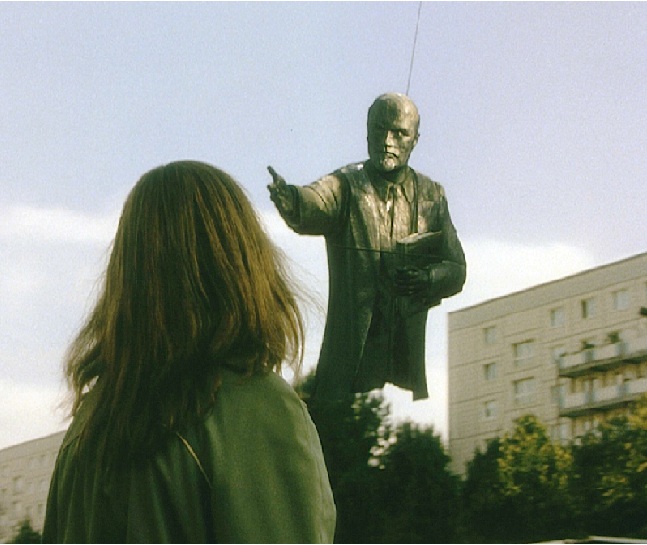It is not the first time I am expressing my fondness for modern German cinema. Over the last couple of decades they seem to have churned out films after films dealing with the darker periods of their recent history. While a lot of societies prefer to live in constant denial about certain tainted periods of their past, the Germans seem to be brutally honest and more eager than anyone else to tell those stories. I do not know the reasons for the same. Probably the traumatic experience of the World Wars still drives them to forcefully and dispassionately analyse their past.
Nevertheless, it now seems to be an interesting idea to deal with them in a chronological manner and observe the depiction of the turbulent 20th century by the new age German cinema. For the sake of clarity, the term “new” here is loosely used and I am basically referring to the films made in the last decade or so. That is why films like Das Boot, Europa Europa and Tin Drum are being left out although they suite the theme. I have picked four films to depict four distinct phases purely based on my personal preferences.
The White Ribbon (2009):

Shot in stark black and white with no background score, this film begins with a doctor’s horse tripping over a wire in a sleepy German village. After a few days later the wife of a farmer dies in a freak accident in a mill owned by the local baron. Then a child of the baron is abducted and tortured. This sequence of anomalies continues as the film progresses. Are they being done by someone on purpose? Is one act leading to another retaliatory act of violence and madness? All these events are described through the eyes of a narrator whose younger self is a teacher in the village and who also fancies the young maid at the Baron’s and also tries to investigate the events as they come by.
Well, the director Michael Haneke is actually Austrian. Nevertheless this is a German production and hence I can include it in my list. Furthermore, it is the most unique and allegorical of the four films. While it starts like one, it is not actually a thriller. Haneke lures the viewer into a series of mysteries, makes us wonder what is happening and leaves it there. He is not offering any solutions but he is merely constructing a microcosm of a society moving towards disaster. The serene and sleepy village represents a constrained society where genuine emotions are suppressed with strict social and religious codes. It intrigues you and then leaves you baffled. But what is to be noted is that within a couple of decades these children were going to represent the epitome of fanaticism. Probably Haneke is trying to draw an allegory of raging fanaticism in present times or probably not. Only he can tell us!
Der Untergang (2004):
The kids of White Ribbon’s times are now grown up and things are worse than they could have imagined. Hitler’s reign is now limited to his bunker and apart from a few loyalists there is no one he can trust. There is no hope but they try to hang on as long as possible and wait for the inevitable.
Oliver Hirschbiegel’s The Downfall is not a war movie but a humane drama that shows a character like Hitler at his most vulnerable. A stellar performance by Bruno Ganz as the ageing and defeated dictator drives this film to its expected yet moving finale where we see the final consequences of their fervent jingoism. There is extreme decadence and destruction everywhere as a nation collapses but the real triumph of The Downfall is in dissecting the very psyche of fanaticism.
Bader Meinhoff Komplex (2008):
A bunch of disillusioned youth turns revolutionaries, finds an ideology to associated with and wreak havoc, sometimes for a reason, sometimes without it. This is the post war generation in the capitalist West Germany and this is the real story of the Red Army Faction (RAF), a leftist terrorist group of the 60’s & 70’s. They indulge is several high profile assassinations, bombings and other violent activities, only to fall one by one.
Uli Edel’s film offers high production values, well executed action set pieces and gratuitous sex and violence, which makes it an engaging watch whether one is interested in post-war history or not. It covers all the doom and gloom of extreme leftist activism which was abundant with pessimism about themselves and the world around them. Violent extremism still exists everywhere in the world, this film still remains pertinent.
Good Bye, Lenin! (2003):
A young son in erstwhile East Germany struggles with a mother in comma while the country goes through epochal changes. The patriotic mother wakes up after the Berlin Wall falls. The son is alarmed that the mother may not be able to absorb the shock of the demise of her motherland. But at the same time he is also eager to find his father who deserted to the Western side years ago. As the nation is inundated by capitalist products from the west, he tries hard to keep his mother unaware of them with the help of his friend and a lovely Russian nurse.
Wolfgang Becker’s Good Bye Lenin, as the name suggests, is not only a swan song for the communist regime but an endearing drama encompassing the themes of love, loss and family bonding. Some of the efforts made by the son such as creating a fake East German TV program border absurdity at certain times but that is what makes it even more endearing. A terrific ensemble cast helps in pulling off this rights-of-passage film of a young man as well as a young nation in terms of polity.
* This post is a submission for the Reel-life Bloggers contest conducted by Wogma and Reviewgang.


